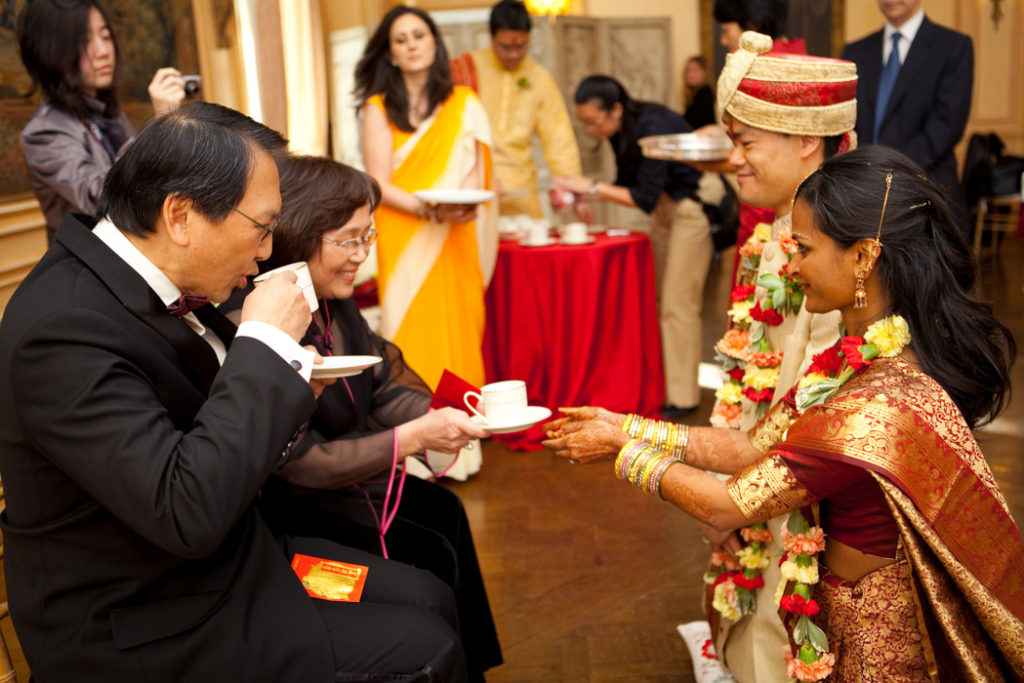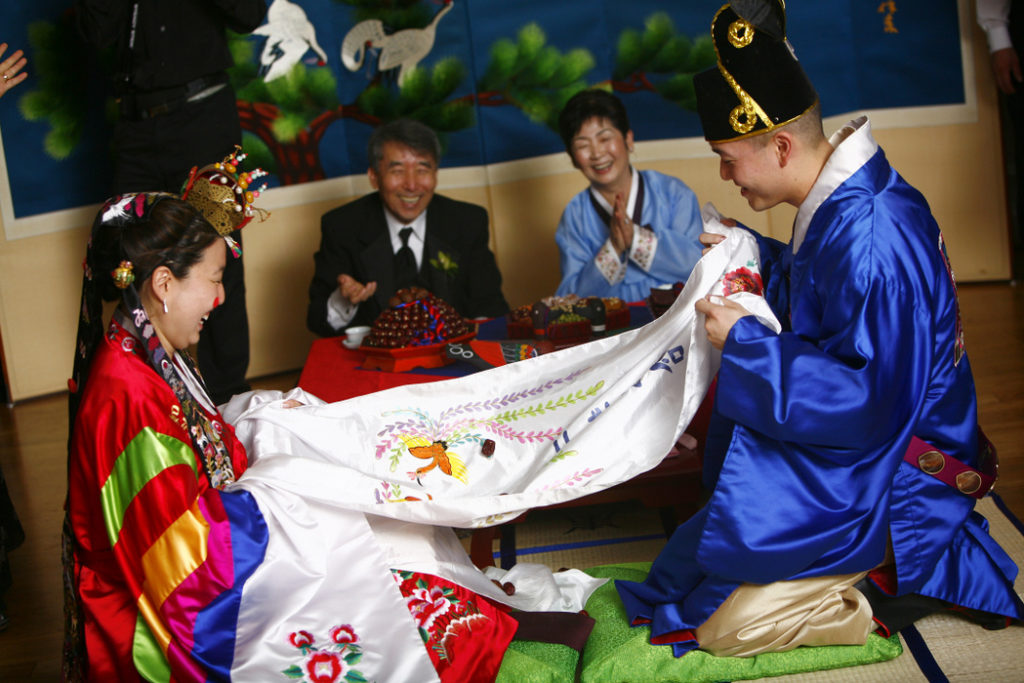In the Washington, DC area, we often work with brides and grooms that come from different cultural backgrounds and they want to incorporate their individual traditions into a fusion wedding. However, we have also seen the challenges that this desire can create during the wedding planning process, sometimes resulting in undue stress and even friction between the families. Here are some tips and thoughts from what we have learned from our clients.
Determine which cultural wedding traditions you want to incorporate. If you are not familiar with the wedding traditions associated with your ethnic background, consult your relatives. While you can do some research on the internet to get an overview, it is best to ask your relatives because traditions can vary even among different regions of a country. For example, with Hindu weddings, there are subtle differences between northern and southern Indian ceremonies and even variations depending on the Hindu priest. When my husband and I got married, I was familiar with Chinese wedding traditions but did not know the details of each step. So, my Mom sent me a written translation of those steps, which really helped us decide which steps would be appropriate for us to incorporate.
Discuss with parents. This is one area that I feel can benefit from working in conjunction with your parents. Their input can be important. The cross generational understanding of what certain traditions are about and how they are to be perform may differ between you and your parents, especially if you and your fiance are of different ethnic or religious background and if you want to incorporate both sides, as well as some standard Western wedding elements. It’s best to talk about it openly in detail early on. Is it acceptable to modify certain traditions? You might be surprised that it may not be acceptable to the families. After all, the wedding is suppose to be about the joining of families, so doing something that can be viewed as offensive to one side or the other because of religion or culture might not be a good way to start.
When and how will you incorporate the selected wedding traditions? Is it something that your guests would enjoy? Would it be better done in private or on another day? When my husband and I got married, we performed the Chinese tea ceremony after our Catholic ceremony – in private. We did it before all the guests arrived at the reception venue. I consulted with my Mom and she felt that it was more respectful to do it in private. On the other hand, my best friend from high school incorporated the tea ceremony into her reception so that all the guests may share in the experience
Photo: Genevieve Leiper Photography
Will your guests understand what is happening? If not, you may consider having some written or have a MC describe what is happening. My husband and I attended an Afghani/Pakistani wedding not too long ago. The bride and groom performed wedding rituals which we had no idea what they were all about and it went on for a long time. While it was interesting to observe, it would have been more enjoyable if we knew what was going on. A few weeks ago, our client had a Hindu ceremony. While a program was provided to the guests so they could follow along, for the first time, the Hindu priest actually explained each ceremonial step he performed, which made it so much more meaningful to the guests. Normally, the priest speaks in Hindi only.
How long with it take? How elaborate are the set up for the tradition? One of our clients wanted to perform the traditional Korean Pae Bek ceremony during her reception. While we really enjoy having the guests participate and learn about the ritual, it took 30-45 minutes to set up all the items needed and for the bride and groom to change into their Korean outfits. The venue was also not ideal for such an elaborate set up, and would have worked out better if it could have been done in another larger room.


